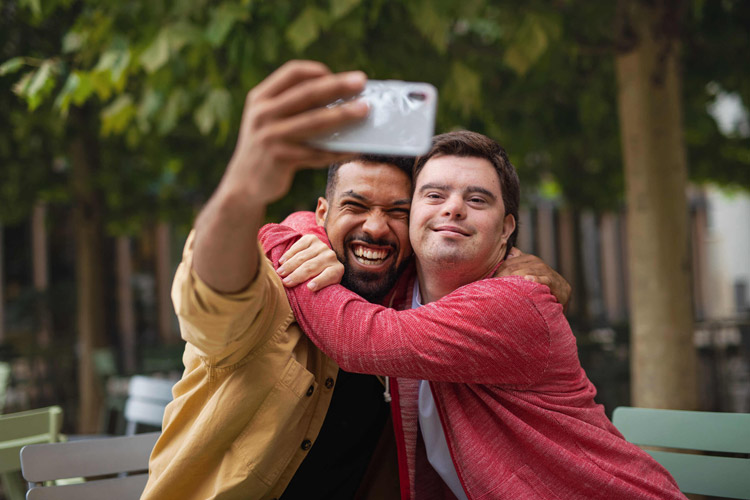Becoming a father is awesome, in that immense, shake your foundation, change your world, amp up your protective instincts kind of way. Becoming a father to a child with developmental disabilities is double, quadruple, maybe 1,000 times as awesome, in ways that are great and in ways that are challenging.
This Father’s Day, Team AbleLight would like to recognize and pay tribute to all those dads out there who rise to the challenge, often while quaking in their boots. What do fathers of kids with intellectual and developmental disabilities (I/DD) do that’s so amazing?
Following are a few of the incredible things we see and hear about fathers, host home “dads,” direct support professionals, brothers, and other men in the lives of children and adults with developmental disabilities.
Fathers of kids with I/DD:
- Take charge and advocate for their kid
- Support what their kid is excited about
- Chart a new path to get what their child needs; a support person, power wheelchair, speech devices, therapy, whatever they need
- Teach and practice with their kid. It might be assistive technology instead of baseball, but they’re teaching, practicing, and helping their kids thrive.
- Provide a safe and loving home, not a given for people with I/DD
- Calm their fears
- Encourage patience, often through being a constant in their kid’s life
- Bend the rules, sometimes a lot, if that’s what it takes to support opportunity and inclusion for their children
- Make the tough decisions, mainstream or not, isolated or integrated. It can be a difficult choice, but someone must make it.
- Worry about whether they’re getting a good education, socializing with others or what’s next after high school.
- Give kids their independence, let them learn, sometimes the hard way, as they become more independent and find support outside the family
We salute fathers of children with I/DD for all these reasons and so much more.
In the end, dads of kids with disabilities and other “father figures” who support them aren’t that much different from any other dad. They may work a little harder, worry a little more and hold on a little too long or too tightly, but it’s all for their kids.

